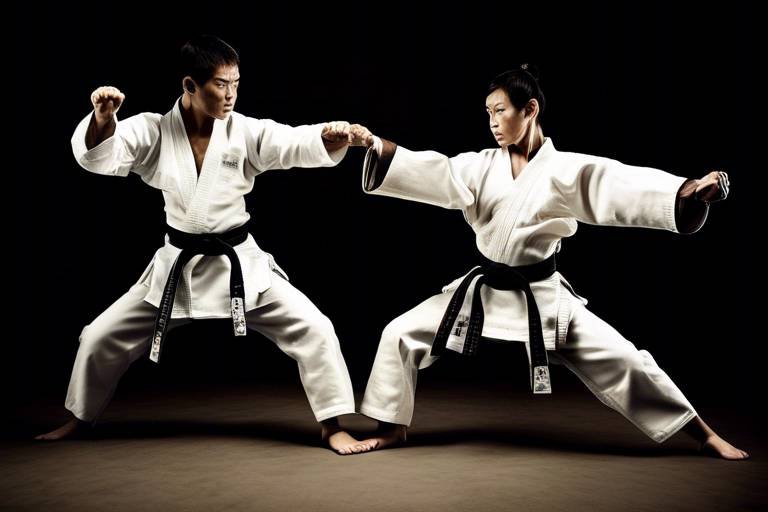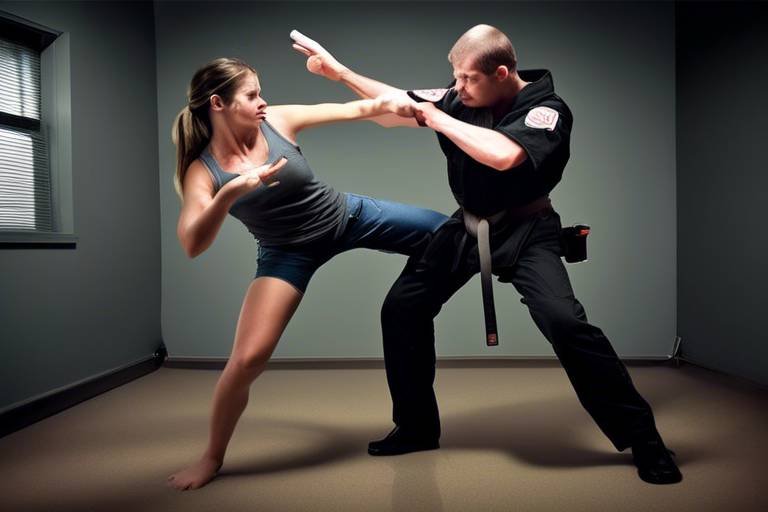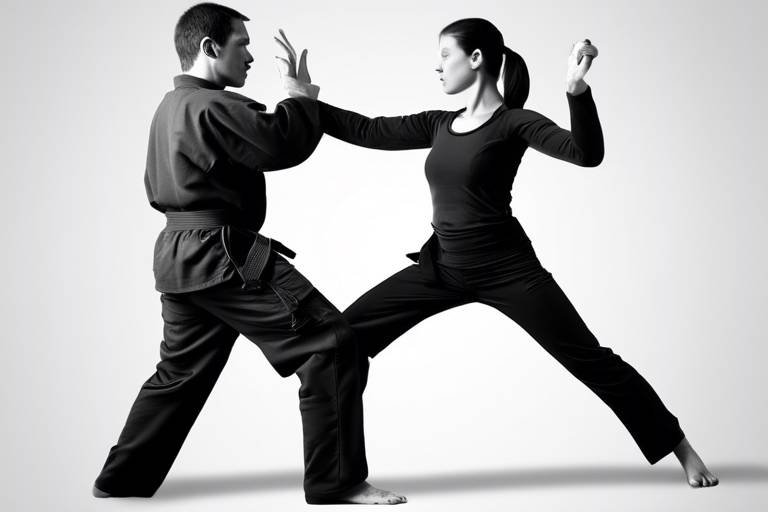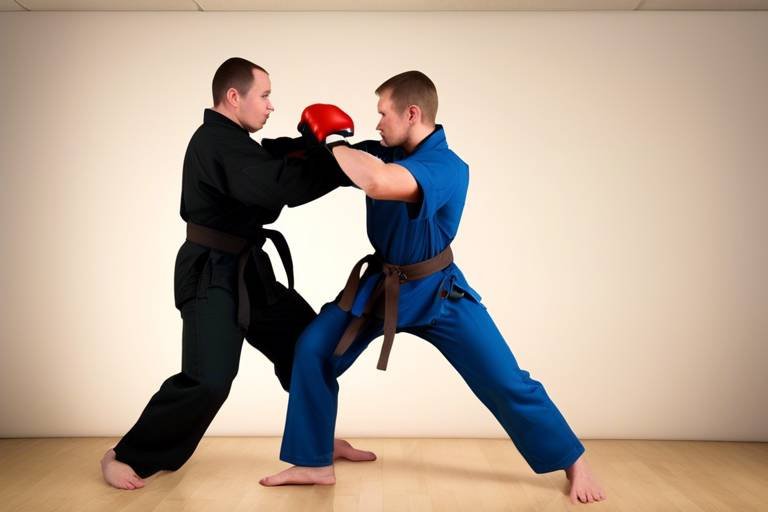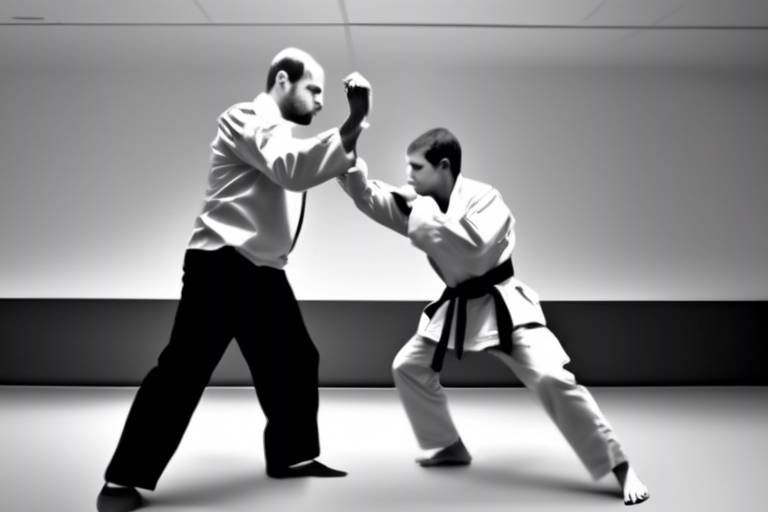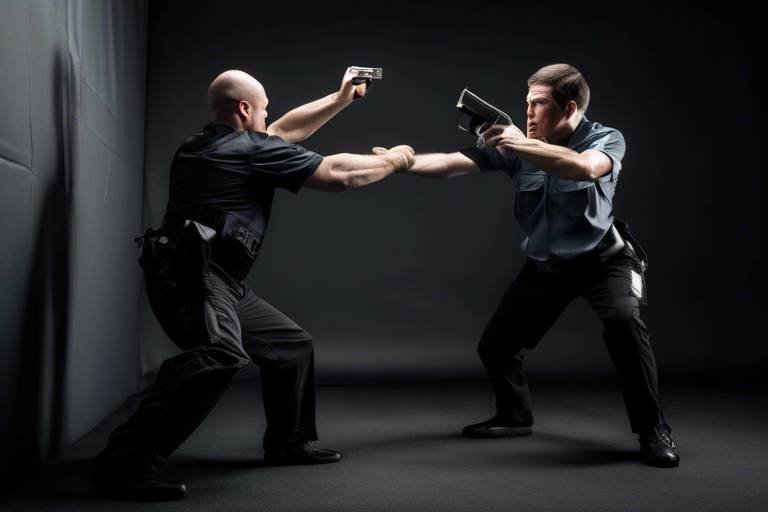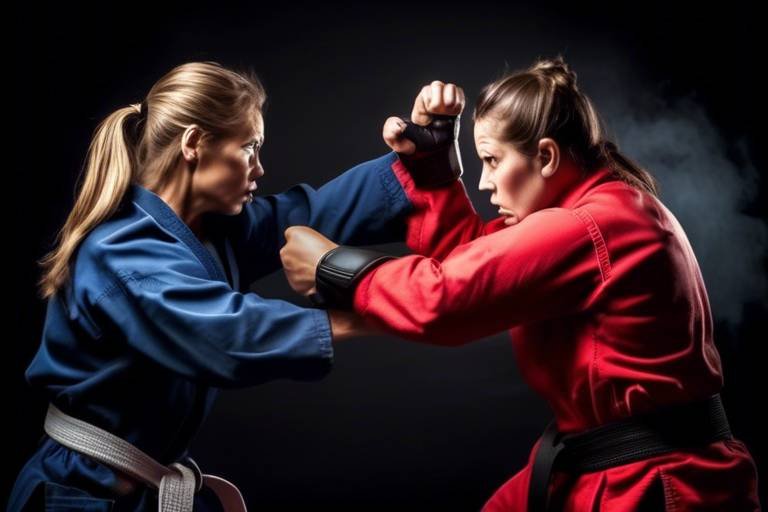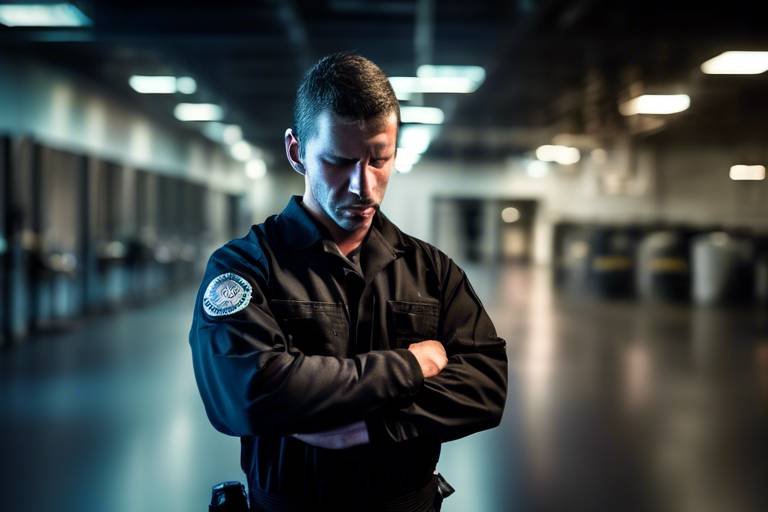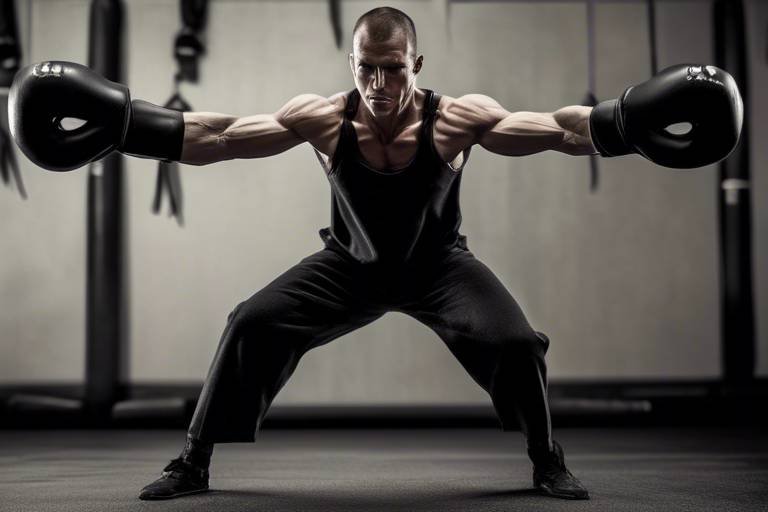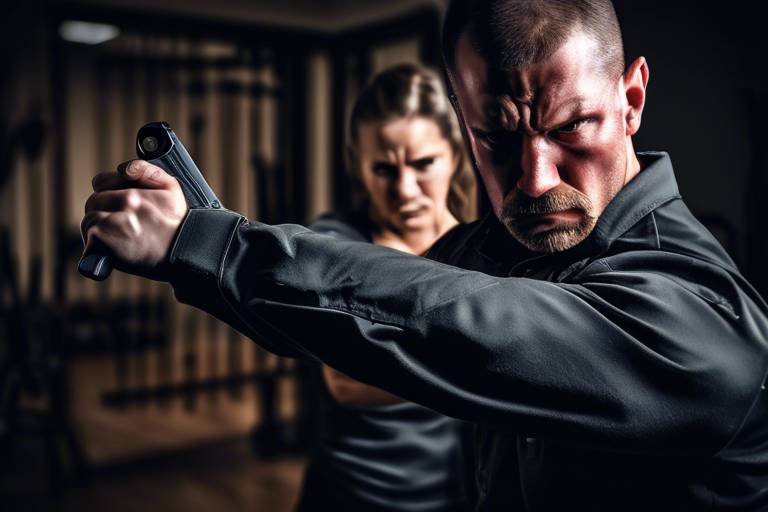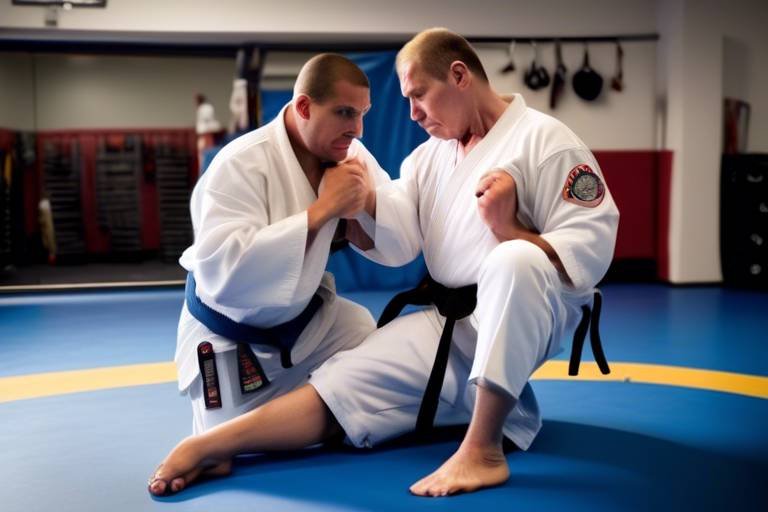How to Stay Calm During a Self-Defense Scenario?
When faced with a self-defense scenario, the adrenaline rush can feel overwhelming, almost like being thrown into a storm without a life vest. However, the key to navigating these turbulent waters lies in maintaining your composure. Staying calm is not just a luxury; it’s a necessity that can significantly influence the outcome of an encounter. Think of it as the eye of the storm—amid chaos, there is a center of peace that allows you to think clearly and act decisively. In this article, we will explore various techniques and strategies to help you maintain that calmness when it matters most, ensuring effective responses and improved safety.
Why is staying calm so critical during a self-defense scenario? Imagine trying to navigate a maze while panicking; you’re more likely to make poor decisions and get lost. Similarly, in high-pressure situations, a calm mind fosters clarity, enabling you to assess threats accurately and respond appropriately. It’s not just about avoiding panic; it’s about **enhancing your decision-making abilities**. When you remain composed, you can think rationally, allowing you to evaluate your surroundings and the best course of action. This mental steadiness can be the difference between a successful defense and a regrettable outcome.
To cultivate calmness, you can employ various mental techniques, such as visualization and mindfulness. Visualization is like rehearsing for a play; the more you practice in your mind, the more prepared you’ll feel when the curtain rises. Imagine yourself in a self-defense situation, calmly assessing your surroundings and responding effectively. Mindfulness, on the other hand, is about being present in the moment. It helps you to focus on your breathing, your body, and the immediate environment, rather than getting lost in a whirlwind of anxious thoughts. By honing these skills, you can significantly enhance your composure during real-life encounters.
Breathing exercises are powerful tools for reducing anxiety and promoting relaxation. When you focus on your breath, it’s like hitting the reset button on your nervous system. Here are a couple of effective breathing techniques that can ground you during a self-defense situation:
Diaphragmatic breathing, also known as deep belly breathing, is a simple yet effective technique to lower stress levels. To practice this technique, find a comfortable position, either sitting or lying down. Place one hand on your chest and the other on your abdomen. Inhale deeply through your nose, allowing your abdomen to rise while keeping your chest relatively still. Exhale slowly through your mouth. This method not only calms your mind but also helps to oxygenate your body, preparing you for action. As you practice, aim to make your breaths deeper and slower, which can significantly enhance your sense of calm.
Box breathing is another structured method that can help regulate your nervous system. It’s called "box breathing" because it involves four equal parts, much like the sides of a box. Here’s how to implement it:
1. Inhale through your nose for a count of 4. 2. Hold your breath for a count of 4. 3. Exhale through your mouth for a count of 4. 4. Hold your breath again for a count of 4.
Repeat this cycle for several minutes. This technique can slow your heart rate and create a sense of calm, making it easier to think clearly during a self-defense situation.
Practicing mindfulness can significantly enhance your situational awareness, which is crucial during a self-defense scenario. Mindfulness is about being fully present, allowing you to observe your surroundings without getting overwhelmed by fear. Techniques such as focusing on your senses—what you see, hear, and feel—can ground you in the moment. This heightened awareness can help you notice potential threats early and react appropriately. By cultivating mindfulness, you’re not just preparing your mind; you’re equipping yourself to handle unexpected challenges with grace.
While mental techniques are essential, being physically prepared also contributes to a sense of calm. Think of it this way: if you know you have the skills and fitness to defend yourself, you’re less likely to panic. Self-defense training not only teaches you techniques but also builds confidence. Regular practice makes those skills second nature, allowing you to respond instinctively rather than reactively. It’s like learning to ride a bike; once you’ve mastered it, you can navigate any terrain with ease.
Engaging in self-defense classes can significantly boost your confidence and reduce panic during real-life encounters. These classes provide the opportunity to practice techniques in a controlled environment, helping you become familiar with movements and strategies. The more you train, the more prepared you’ll feel, and that sense of preparedness can translate into calmness when faced with danger.
Maintaining physical fitness is crucial for overall resilience in stressful situations. Regular exercise not only strengthens your body but also releases endorphins, which help improve your mood and reduce anxiety. When you’re in good shape, you’ll find it easier to stay composed under pressure. Conditioning your body through activities like running, martial arts, or even yoga can enhance your ability to react effectively, ensuring you remain calm and focused when it counts.
- What should I do if I feel panic setting in during a confrontation? Focus on your breathing and use techniques like box breathing to regain control.
- How can I practice mindfulness in everyday life? Try setting aside a few minutes each day to focus on your senses and the present moment.
- Is self-defense training necessary for everyone? While not everyone needs to become a martial arts expert, understanding basic self-defense can greatly enhance your confidence and safety.
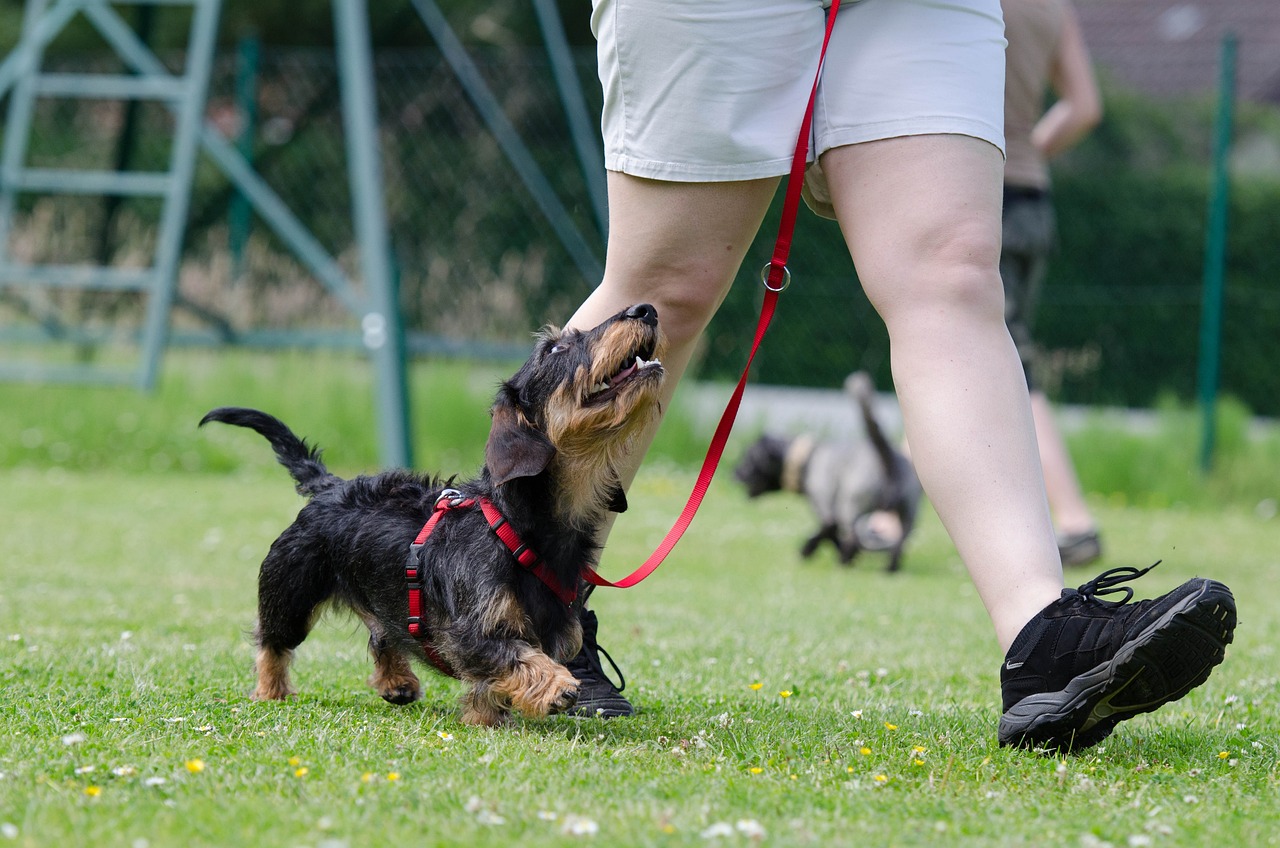
The Importance of Staying Calm
When faced with a self-defense scenario, the ability to remain calm can be your greatest ally. Imagine being in a high-pressure situation where every second counts; your heart races, and your mind is flooded with a million thoughts. This is where staying calm becomes not just important, but essential. Remaining composed allows you to think clearly, make informed decisions, and react effectively to the threat at hand. In contrast, panic can cloud your judgment and lead to mistakes that could escalate the situation.
But why is calmness so crucial? The psychological benefits of maintaining composure during a confrontation are profound. When you are calm, your body is less likely to enter a state of panic, which can trigger the fight-or-flight response. Instead of being overwhelmed, you can assess the situation more rationally. This not only aids in your immediate response but also helps you to strategically plan your next moves. Studies have shown that individuals who can manage their anxiety during crises are often more successful in navigating dangerous situations.
Furthermore, staying calm can have a ripple effect. Your demeanor can influence those around you. If you project calmness, it can help to diffuse tension and potentially de-escalate a volatile situation. Think of it like a calm lake in the midst of a storm; your tranquility can serve as a stabilizing force. This is especially important if you are with others, as your ability to remain composed can help them feel more secure and less panicked.
In summary, the importance of staying calm in a self-defense scenario cannot be overstated. Here are key points to consider:
- Clear Thinking: Composure allows for better decision-making.
- Effective Response: Remaining calm helps you react appropriately.
- Influence on Others: Your calmness can help de-escalate a situation.
- Reduced Panic: Staying calm prevents overwhelming anxiety.
Ultimately, mastering the art of staying calm is a skill that can be developed over time. By understanding its importance, you can start to implement techniques that will enhance your ability to remain composed, even in the most stressful situations. Remember, in the world of self-defense, your mind is just as important as your physical skills.

When it comes to staying calm during a self-defense scenario, your mind can be your best ally or your worst enemy. The trick lies in mastering mental techniques that help you maintain composure when the stakes are high. Imagine being in a situation where your heart races, and your mind is clouded with fear. Instead of succumbing to panic, you can harness the power of your thoughts to regain control. This section will explore effective strategies like visualization and mindfulness that not only enhance your focus but also empower your decision-making abilities.
One of the most powerful tools at your disposal is visualization. This technique involves picturing yourself successfully navigating a self-defense scenario. By vividly imagining how you would react, you create a mental blueprint that can guide your actions in real life. Think of it as rehearsing for a play; the more you practice in your mind, the more natural your responses will feel when the moment arrives. Visualization helps to reduce anxiety and boosts your confidence, making it easier to stay calm under pressure.
Another essential technique is mindfulness. This practice encourages you to stay present and aware of your surroundings, which is crucial during a self-defense situation. By focusing on the here and now, you can better assess threats and make informed decisions. Mindfulness can be cultivated through various exercises, such as meditation or simply taking a moment to observe your environment. For instance, before entering a potentially dangerous area, take a deep breath and scan your surroundings. This simple act can ground you and enhance your situational awareness.
Breathing exercises play a vital role in managing stress and promoting relaxation. They serve as a bridge between your mind and body, helping to regulate your nervous system. Here are a couple of techniques you can practice:
Diaphragmatic breathing, often referred to as deep belly breathing, is a simple yet effective way to lower stress levels. To practice this technique, find a comfortable position, either sitting or lying down. Place one hand on your chest and the other on your belly. As you inhale deeply through your nose, allow your belly to rise while keeping your chest relatively still. Exhale slowly through your mouth, feeling your belly fall. Repeat this process for several minutes. By focusing on your breath, you can calm your mind and prepare yourself for any challenges ahead.
Box breathing is another structured technique that can help regulate your nervous system. This method involves four simple steps, each lasting four counts:
1. Inhale through your nose for 4 counts. 2. Hold your breath for 4 counts. 3. Exhale slowly through your mouth for 4 counts. 4. Hold your breath again for 4 counts.
Repeat this cycle several times. Box breathing not only calms your mind but also provides a moment to reset your thoughts, allowing you to approach a self-defense scenario with clarity and focus.
Incorporating these mental techniques into your routine can significantly enhance your ability to stay calm during self-defense situations. By practicing visualization and mindfulness, along with effective breathing exercises, you can create a mental toolkit that prepares you for whatever challenges may come your way. Remember, it's not just about physical preparedness; your mind is a powerful weapon in the fight for your safety.
- What is the best breathing technique for calming down? Diaphragmatic breathing is often considered one of the most effective techniques for reducing anxiety.
- How can visualization help in self-defense? Visualization helps you mentally rehearse scenarios, making your responses feel more natural and instinctive.
- What role does mindfulness play in self-defense? Mindfulness enhances situational awareness, allowing you to react more effectively to threats.

Breathing Exercises
When it comes to staying calm during a self-defense scenario, one of the most powerful tools at your disposal is your breath. can significantly lower anxiety levels and promote a sense of relaxation, even in the face of danger. Think of your breath as an anchor; it keeps you grounded amidst the chaos. By focusing on your breathing, you can create a moment of clarity that allows you to respond rather than react. Let's explore some effective breathing techniques that can help you maintain composure when it matters most.
One of the simplest yet most effective methods is diaphragmatic breathing, also known as deep belly breathing. This technique involves using your diaphragm to take deep, full breaths, which can help lower your heart rate and reduce stress hormones in your body. To practice this, find a comfortable position, either sitting or lying down. Place one hand on your chest and the other on your belly. As you inhale deeply through your nose, aim to expand your belly while keeping your chest as still as possible. Hold for a moment, then exhale slowly through your mouth. Repeat this process for a few minutes, and you’ll notice a significant reduction in tension.
Another effective technique is box breathing, which is particularly useful for regulating your nervous system. This structured method involves inhaling, holding, exhaling, and holding your breath again, each for the same duration. Here’s how to do it:
| Step | Action | Duration |
|---|---|---|
| 1 | Inhale deeply through your nose | 4 seconds |
| 2 | Hold your breath | 4 seconds |
| 3 | Exhale slowly through your mouth | 4 seconds |
| 4 | Hold your breath again | 4 seconds |
Repeat this cycle for several minutes. Not only does box breathing help to calm your mind, but it also enhances your focus, making it easier to assess your surroundings and respond effectively in a self-defense situation.
Incorporating these breathing exercises into your daily routine can vastly improve your ability to stay calm under pressure. Just like a musician practices scales, the more you practice these techniques, the more instinctive they become. So, the next time you find yourself in a tense situation, remember to take a moment to breathe. It could be the difference between panic and poise.
- How often should I practice breathing exercises? It's beneficial to practice daily, even for just a few minutes, to build muscle memory and make it easier to use these techniques in stressful situations.
- Can breathing exercises really help in a self-defense scenario? Absolutely! They can lower your stress levels and help you think clearly, improving your decision-making abilities when it matters most.
- What if I forget the techniques during a crisis? That's completely normal! The key is to practice regularly so that these techniques become second nature, allowing you to recall them more easily under pressure.

Diaphragmatic Breathing
When it comes to managing stress, , often referred to as deep belly breathing, stands out as one of the most effective techniques. This method not only promotes relaxation but also helps to ground you during moments of high tension, such as a self-defense scenario. Imagine your body as a balloon; when you inhale deeply, you expand that balloon, filling it with air, and when you exhale, you release the tension and stress, allowing the balloon to return to its original shape. This simple yet powerful practice can significantly lower your heart rate and calm your mind, making it easier to think clearly when facing danger.
To practice diaphragmatic breathing, find a comfortable position—whether sitting or lying down. Place one hand on your chest and the other on your abdomen. As you breathe in through your nose, focus on expanding your diaphragm rather than your chest. You should feel your abdomen rise while your chest remains relatively still. This indicates that you are engaging your diaphragm effectively. Hold that breath for a moment, and then slowly exhale through your mouth, feeling your abdomen fall. Repeat this process for several minutes, gradually increasing the duration of your inhales and exhales.
Here’s a quick overview of the steps to practice diaphragmatic breathing:
- Find a quiet space where you can focus without distractions.
- Assume a comfortable position, either sitting or lying down.
- Place one hand on your chest and the other on your belly.
- Inhale deeply through your nose, allowing your abdomen to rise.
- Hold your breath for a count of three.
- Exhale slowly through your mouth, feeling your abdomen fall.
- Repeat this cycle for 5-10 minutes.
By incorporating this technique into your routine, you can train your body to respond better to stressful situations. The more you practice, the more natural it will feel, allowing you to tap into this calming resource whenever you need it. In a self-defense situation, being able to control your breath can mean the difference between panic and clarity. So, why not take a moment each day to practice diaphragmatic breathing? It could be your secret weapon when facing unexpected challenges.
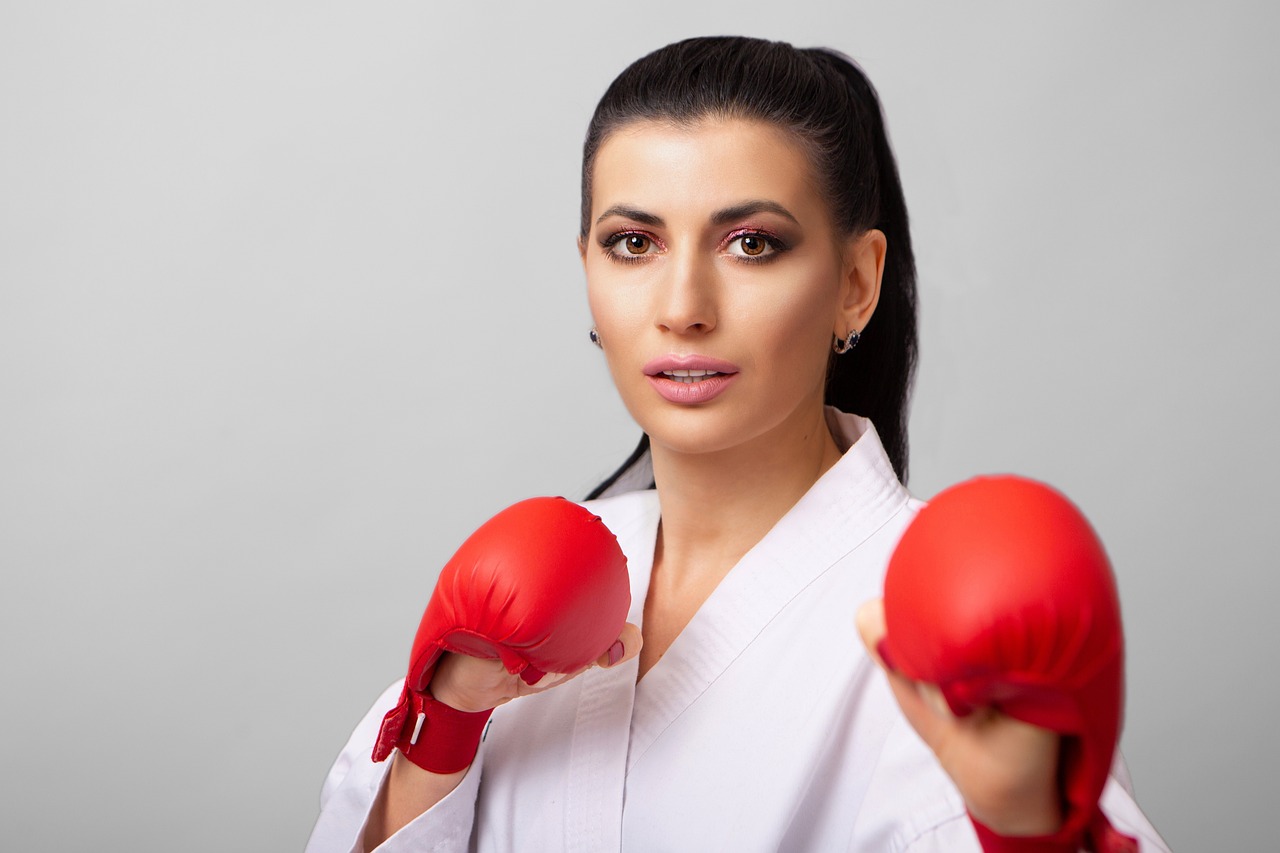
Box Breathing
Box breathing is a powerful technique that can help you regain control over your breathing and calm your mind during high-stress situations. Imagine you’re standing on the edge of a cliff, the wind howling around you, and your heart racing. In moments like these, your body can go into overdrive, making it difficult to think clearly or react appropriately. That’s where box breathing comes in—it’s like a mental anchor that keeps you grounded when everything else feels chaotic.
So, what exactly is box breathing? It’s a structured breathing method that involves four simple steps, each lasting for the same duration. Think of it as creating a 'box' with your breath. The beauty of this technique is that it’s easy to remember and can be practiced anywhere, whether you’re at home, in your car, or even in a self-defense scenario. Here’s how to do it:
- Inhale: Breathe in deeply through your nose for a count of four. Feel your lungs fill with air, expanding your belly.
- Hold: Hold your breath for another count of four. This is where you start to feel the stillness; embrace it.
- Exhale: Slowly exhale through your mouth for a count of four. Imagine letting go of all the tension and stress.
- Hold: Hold your breath again for a count of four before starting the cycle over.
Repeat this cycle for several minutes, and you’ll notice a significant decrease in anxiety and a greater sense of calm. The counting aspect of box breathing helps to distract your mind from the panic, allowing you to focus solely on your breath. It’s almost like giving your brain a mini-vacation from stress!
Incorporating box breathing into your daily routine can also enhance your overall mental clarity and focus, which are crucial when you need to make quick decisions in self-defense scenarios. Just like a musician practices scales, the more you practice box breathing, the more instinctive it becomes. It’s a skill that can be honed over time, and when you need it most, it will be there for you.
So, the next time you feel your heart racing or your mind spiraling out of control, remember that you have the power to take a step back and breathe. Box breathing is your secret weapon for maintaining composure and making rational decisions, even in the face of danger.

Mindfulness and Awareness
In the heat of a self-defense situation, your mind can feel like a chaotic whirlwind, racing with thoughts and emotions that can cloud your judgment. This is where mindfulness comes into play. It's like having a mental anchor that keeps you grounded amidst the storm. By practicing mindfulness, you train your brain to focus on the present moment, allowing you to observe your surroundings without becoming overwhelmed. Imagine being in a room full of noise, yet you can still hear a single conversation—this is what mindfulness can do for your situational awareness.
Mindfulness isn't just about meditation; it's about cultivating a heightened sense of awareness in every aspect of your life. When faced with a potential threat, being aware of your environment can make all the difference. You can notice subtle cues, such as body language or changes in tone, that might indicate an escalation. It's like being a detective in your own life, collecting clues that help you make informed decisions. To develop this skill, consider integrating the following techniques into your daily routine:
- Focused Breathing: Take a few moments each day to focus solely on your breath. Inhale deeply, hold for a moment, and exhale slowly. This practice not only calms your mind but also enhances your ability to remain present during stressful situations.
- Body Scan: Regularly check in with your body. Notice any areas of tension or discomfort, and consciously relax them. This technique helps you become more aware of your physical state, which can be crucial in moments of panic.
- Mindful Observation: Spend time observing your surroundings without judgment. Whether you're in a park or a bustling city street, take mental notes of the details around you. This practice sharpens your observational skills and prepares you for unexpected encounters.
Additionally, mindfulness can enhance your decision-making abilities in a self-defense scenario. When you're calm and aware, you can assess the situation more clearly. You might find that instead of reacting impulsively, you're able to evaluate your options and choose the best course of action. Think of it as having a mental toolbox at your disposal; with practice, you can quickly reach for the right tool when faced with adversity.
Moreover, engaging in mindfulness practices can significantly reduce stress levels over time. When you train your mind to remain calm, you're less likely to succumb to panic during a confrontation. Just as athletes visualize their performance before a big game, you can visualize yourself handling a self-defense scenario with poise and confidence. This mental rehearsal can prepare you to act decisively when the moment arrives.
In summary, incorporating mindfulness and awareness into your life is not just beneficial for self-defense; it’s a holistic approach that enhances your overall well-being. By being present, you empower yourself to respond effectively to challenges, making you not just a survivor but a warrior in any situation.
Q: How can I start practicing mindfulness?
A: Begin with short sessions of focused breathing or meditation. Gradually increase the duration as you become more comfortable. There are many apps available that can guide you through mindfulness exercises.
Q: Can mindfulness really help in a self-defense situation?
A: Absolutely! Mindfulness helps you stay calm and aware, allowing you to make better decisions in high-pressure situations.
Q: How often should I practice mindfulness?
A: Aim for daily practice, even if it’s just for a few minutes. Consistency is key to reaping the benefits.
Q: What if I find it difficult to stay focused?
A: It's common to struggle with focus initially. Be patient with yourself and try different techniques until you find what works best for you.

Physical Preparedness
When it comes to self-defense, plays a pivotal role in maintaining composure during stressful encounters. Imagine being in a high-pressure situation where your heart races, and your mind goes blank. Now, picture instead being fit and trained, feeling confident in your abilities to handle whatever comes your way. This is the power of physical preparedness. It not only enhances your ability to react quickly but also instills a sense of calmness that can be crucial in a self-defense scenario.
First and foremost, engaging in self-defense training can be a game-changer. Regular classes teach you not just techniques but also how to manage fear and anxiety. When you practice, you become familiar with various scenarios, which can significantly reduce panic during real-life encounters. The more you train, the more your body learns to react instinctively, allowing your mind to stay clear and focused. Here are some benefits of self-defense training:
- Increased confidence in your abilities.
- Improved physical fitness and agility.
- Enhanced situational awareness.
- Better stress management skills.
Moreover, maintaining a regular fitness regimen is equally important. Think of it like building a solid foundation for a house; without it, everything else could crumble under pressure. Physical fitness not only improves your strength and endurance but also boosts your mental resilience. When your body feels strong, your mind tends to follow suit. Here are some key aspects of fitness that contribute to staying calm:
| Fitness Aspect | Benefits for Self-Defense |
|---|---|
| Cardiovascular Health | Increases stamina, allowing you to maintain energy during a confrontation. |
| Strength Training | Enhances your ability to defend yourself effectively and confidently. |
| Flexibility | Improves your range of motion, making it easier to evade attacks. |
| Balance and Coordination | Helps you maintain stability and control in dynamic situations. |
Incorporating a blend of these fitness components into your routine can significantly bolster your self-defense capabilities. Whether it’s hitting the gym, going for a run, or practicing martial arts, every bit of effort counts. Remember, it’s not just about being physically prepared; it’s about building a mindset that embraces challenges with confidence and calmness. So, lace up your shoes, hit the mat, and start training your body and mind to be ready for anything!
Q: How often should I train for self-defense?
A: Ideally, training 2-3 times a week can help build muscle memory and confidence. Consistency is key!
Q: Does physical fitness guarantee safety in a self-defense situation?
A: While it significantly enhances your chances, being physically fit is just one aspect. Mental preparedness and situational awareness are equally important.
Q: What type of self-defense training should I consider?
A: Look for classes that focus on practical techniques, such as Krav Maga, Brazilian Jiu-Jitsu, or Muay Thai, which emphasize real-life scenarios.
Q: Can mindfulness practices contribute to physical preparedness?
A: Absolutely! Mindfulness can improve your focus and reduce anxiety, making it easier to react calmly in stressful situations.
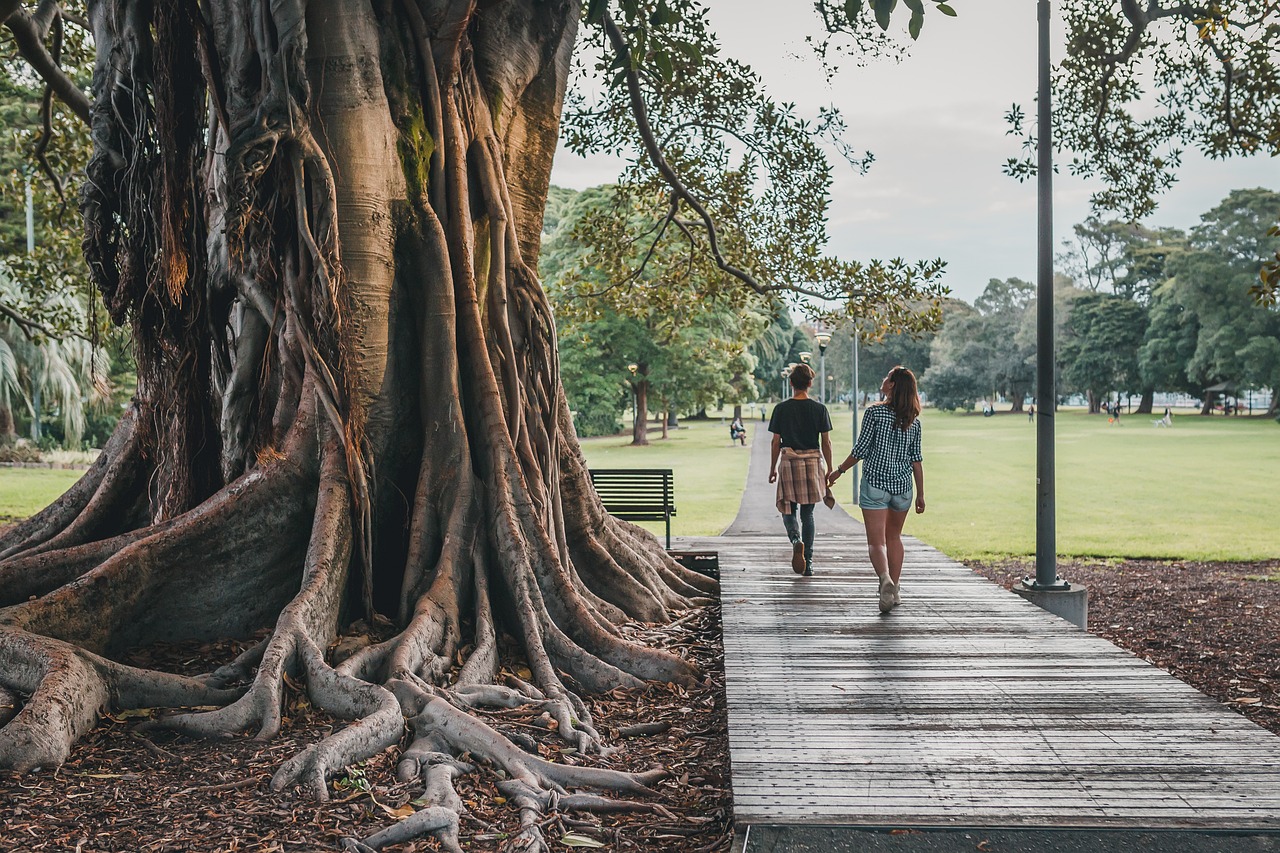
Self-Defense Training
Engaging in is not just about learning to throw a punch or escape a hold; it's about building a foundation of confidence that can significantly reduce panic during real-life encounters. Imagine walking down the street, and suddenly, you feel threatened. Instead of freezing in fear, the skills you've acquired through structured training kick in, allowing you to assess the situation and react appropriately. This is the power of self-defense training—it's like having a mental safety net that can catch you when your instincts might otherwise lead you astray.
One of the most compelling benefits of self-defense training is the boost it gives to your confidence. When you know how to defend yourself, you carry yourself differently. You walk taller, you engage with your surroundings more, and you are less likely to be targeted by potential aggressors. This transformation is not merely physical; it's psychological. Training instills a sense of empowerment that can alter your perception of danger. You begin to see challenges as opportunities to apply your skills rather than as insurmountable threats.
Moreover, self-defense training enhances your ability to make quick decisions under pressure. During a confrontation, your mind can become a whirlwind of thoughts—what should I do? Is it time to fight or flee? With practice, you can train your brain to respond instinctively, allowing you to remain calm and collected. This is akin to a musician who has practiced a piece so many times that they can play it flawlessly, even under the spotlight. The more you train, the more second nature your responses become.
In addition to mental preparedness, self-defense training also emphasizes physical conditioning. A well-rounded program will not only teach you techniques but will also improve your strength, agility, and endurance. Think of it as preparing for a marathon; you wouldn’t just show up on race day without training. Similarly, being physically fit can enhance your ability to execute self-defense techniques effectively. A strong body supports a strong mind, and together, they create a formidable defense.
So, what does self-defense training typically involve? Here are some key components:
- Techniques: Learning various self-defense moves that can help you escape or neutralize a threat.
- Situational Awareness: Understanding your environment and recognizing potential dangers before they escalate.
- Scenario Practice: Engaging in role-playing exercises that simulate real-life situations to prepare for unexpected encounters.
- Physical Conditioning: Building strength, flexibility, and endurance to enhance your ability to respond effectively.
In conclusion, self-defense training is a vital investment in your personal safety and well-being. By committing to regular practice, you not only equip yourself with essential skills but also cultivate a mindset of resilience and confidence. Remember, it's not just about fighting; it's about being prepared for whatever life throws your way. When you train, you're not just learning how to defend yourself—you're learning how to stand tall in the face of adversity.
Q: How long does it take to become proficient in self-defense?
A: Proficiency varies by individual, but consistent training over a few months can significantly enhance your skills and confidence.
Q: Do I need to be physically fit to start self-defense training?
A: No, self-defense training is suitable for individuals of all fitness levels. Training can help improve your physical condition over time.
Q: Can self-defense training help with mental preparedness?
A: Absolutely! Self-defense training not only teaches physical techniques but also enhances your mental resilience and decision-making skills under pressure.
Q: What types of self-defense classes should I consider?
A: Look for classes that offer a blend of practical techniques, situational awareness training, and physical conditioning. Popular styles include Krav Maga, Brazilian Jiu-Jitsu, and Muay Thai.

Fitness and Conditioning
Staying calm during a self-defense scenario is not merely a mental exercise; it requires a solid foundation of physical preparedness. When you are in peak physical condition, your body is more capable of handling stress, which directly contributes to your mental state. Think of your body as a finely tuned machine; the better it runs, the more efficiently it can respond to unexpected situations. Regular fitness training not only enhances your strength and endurance but also equips you with the confidence needed to face potential threats.
Incorporating a balanced fitness regimen into your lifestyle can significantly improve your resilience during confrontational moments. Activities like cardiovascular workouts, strength training, and flexibility exercises can create a well-rounded fitness profile. Not only do these workouts boost your physical capabilities, but they also release endorphins—those magical hormones that help alleviate stress and anxiety. When you feel good physically, it translates into a more composed mental state.
Consider the following components when developing your fitness routine for self-defense readiness:
- Cardiovascular Fitness: Activities such as running, cycling, or swimming can enhance your stamina, allowing you to maintain energy levels during a prolonged confrontation.
- Strength Training: Building muscle not only improves your ability to defend yourself but also boosts your confidence. Lifting weights or engaging in bodyweight exercises can be incredibly beneficial.
- Flexibility and Mobility: Incorporating stretching and mobility exercises can prevent injuries and improve your reaction times, essential for self-defense scenarios.
Moreover, it's essential to remember that fitness is not a one-size-fits-all approach. Everyone's body responds differently to various forms of exercise, so it's crucial to find what works best for you. Consulting with a fitness professional can help tailor a program that aligns with your self-defense goals while ensuring you enjoy the process.
In addition to physical training, consider participating in self-defense classes that incorporate fitness elements. These classes often emphasize practical techniques while providing an intense workout, ensuring that you are not only learning how to defend yourself but also improving your overall fitness level. Regular practice in these environments can help simulate the stress of real-life situations, allowing you to condition both your body and mind to react calmly and effectively under pressure.
Ultimately, the combination of fitness and self-defense training creates a powerful synergy that empowers you to face fear head-on. By investing time into your physical conditioning, you're not just preparing your body; you're also fortifying your mind, enabling you to stay calm and collected, even when the stakes are high.
Here are some common questions regarding fitness and conditioning in relation to self-defense:
- How often should I train for self-defense? Aim for at least 2-3 times a week, combining both self-defense techniques and fitness exercises for optimal results.
- Can I practice self-defense alone? Yes, many techniques can be practiced solo, but it's beneficial to train with a partner or in a class to gain real-time feedback.
- What type of fitness is best for self-defense? A mix of cardiovascular, strength, and flexibility training is ideal for preparing your body for the demands of self-defense.
Frequently Asked Questions
- Why is it important to stay calm during a self-defense situation?
Staying calm during a self-defense scenario is crucial because it allows you to think clearly and react effectively. When panic sets in, your decision-making abilities can diminish, potentially putting you at greater risk. By maintaining composure, you can assess the situation better and choose the most appropriate response.
- What mental techniques can help me stay calm?
Several mental techniques can enhance your composure, including visualization and mindfulness. Visualization involves imagining yourself successfully navigating a stressful situation, which can boost your confidence. Mindfulness helps you stay present and aware of your surroundings, allowing you to respond more effectively when faced with danger.
- How do breathing exercises help in stressful situations?
Breathing exercises are powerful tools for managing anxiety and promoting relaxation. Techniques like diaphragmatic breathing and box breathing can help regulate your heart rate and calm your mind, making it easier to handle high-pressure situations. By focusing on your breath, you can ground yourself and regain a sense of control.
- What is diaphragmatic breathing and how do I practice it?
Diaphragmatic breathing, also known as deep belly breathing, involves breathing deeply into your abdomen rather than shallowly into your chest. To practice it, sit or lie down comfortably, place one hand on your chest and the other on your belly, and inhale deeply through your nose, allowing your belly to rise. Exhale slowly through your mouth. This technique can significantly reduce stress levels.
- Can self-defense training really make a difference?
Absolutely! Engaging in self-defense training can significantly enhance your confidence and ability to react calmly during real-life encounters. Regular practice helps you develop the necessary skills and instincts, making it easier to manage stress and respond appropriately in a threatening situation.
- How does physical fitness contribute to staying calm?
Maintaining physical fitness improves your overall resilience and mental clarity, which can be incredibly beneficial in stressful situations. When you are fit, your body is better equipped to handle the physical demands of a confrontation, and this can lead to a greater sense of control and calmness when faced with danger.



